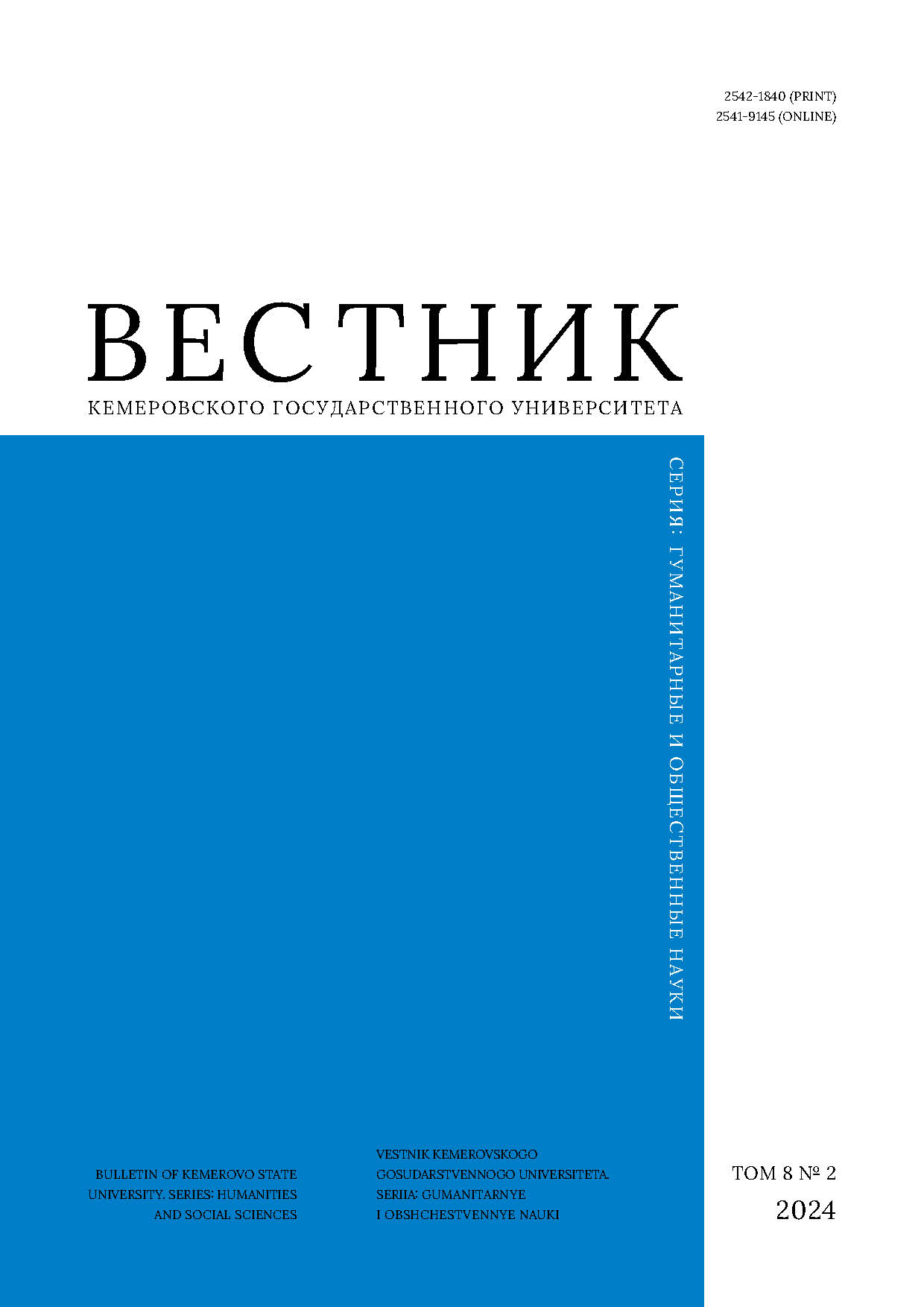Omsk, Russian Federation
Since 2018, the term jurisdiction cannot be applied to civil proceedings as the legislator found it outdated after the single Supreme Court had been introduced. In fact, this term has never been mentioned in the Constitution of the Russian Federation. However, the phenomenon designated by the term cannot be removed from the doctrine and judicial practice for the following reasons. First, the rules of jurisdiction distribute cases between judicial and non-judicial bodies. Second, they make it possible to identify cases of a non-legal nature that cannot claim state protection. The law of 2018 had some positive consequences. Now, the refusal procedure is less complicated. Non-judicial cases can be easily transferred under proper jurisdiction where they will be considered according to a different type of legal proceedings. As for the negative consequences, it seems that the legislator interpreted jurisdiction only as the distribution of cases between different courts and substituted the term subject matter jurisdiction with court jurisdiction. The author criticizes this narrow approach and highlights two urgent issues: 1) not every case has to go to court; 2) digital technologies are important in legal proceedings. These trends can optimize judicial competence, as well as create new rules of court jurisdiction without violating the constitutional right to judicial protection. The article describes the rules of jurisdiction and their improvement, as well as determines the place of jurisdiction among other procedural institutions and introduces some ways to reform the subordination of civil cases to courts of civil jurisdiction. Jurisdiction has an intersectoral nature and is a way of distributing cases between judicial and non-judicial bodies. A combination of standard scientific methods with the formal-legal analysis made it possible to identify the following development directions. 1) Non-judicial cases need proper criteria. 2) New information technologies should enter the judicial system to update the court procedure, e.g., minor cases could be reviewed in court exclusively as an electronic procedure.
competence, subject matter jurisdiction, court jurisdiction, judicial jurisdiction, judicial protection of rights, universality of judicial protection, resolution of legal cases, digitalization of legal proceedings
1. Osokina G. L. Civil Procedure. General information. Moscow: Norma, 2013, 704. (In Russ.)
2. Osokina G. L. Jurisdiction in civil proceedings. Tomsk: TSU,1993, 40. (In Russ.)
3. Bahrah D. N. Jurisdiction of legal cases and its levels. Journal of Russian Law, 2005, (4): 46–60. (In Russ.) https://www.elibrary.ru/opcszz
4. Grubtsova S. P. Mediability and arbitrability: General and special. Arbitration and civil procedure, 2020, (2): 15–18. (In Russ.) https://doi.org/10.18572/1812-383X-2020-2-15-18
5. Konova F. R. Influence of doctrine on transformation of the concept of "competence of the court" in the context of reforming civil law procedural legislation. Herald of Civil Procedure, 2022, 12(1): 127–157. (In Russ.) https://doi.org/10.24031/2226-0781-2022-12-1-127-157
6. Nevostruev A. G. On jurisdiction in civil proceedings. Arbitration and civil procedure, 2022, (5): 13–17. (In Russ.) https://doi.org/10.18572/1812-383X-2022-5-13-17
7. Osipov Yu. K. Jurisdiction of legal matters. Sverdlovsk: b. i., 1973, 124. (In Russ.)
8. Yarkov V. V. Changing the rules of delimitation of jurisdiction between courts: New words and / or new solutions? Zakon, 2019, (4): 92–103. (In Russ.) https://www.elibrary.ru/mdpvrc
9. Vaskovsky E. V. Textbook of civil procedure. Moscow: Zertsalo, 2003, 441. (In Russ.)
10. Golmsten A. H. Textbook of Russian civil proceedings. 2nd ed. St. Petersburg: Tip. M. Merkusheva, 1894, 392. (In Russ.)
11. Goykhbarg A. G. Civil procedure course. Moscow-Leningrad: Gos. izd-vo, 1928, 320. (In Russ.)
12. Malyshev K. I. Civil process course. 2nd ed. St. Petersburg: Tip. M. M. Stasiulevicha, 1876, 449. (In Russ.)
13. Yudelson K. S. Soviet civil procedure. Moscow: Gosiurizdat, 1956, 439. (In Russ.)
14. Pavlova M. S. A reform of the institution of jurisdiction: The content and results. Arbitration and civil procedure, 2023, (6): 34–39. (In Russ.) https://doi.org/10.18572/1812-383X-2023-6-34-39
15. Ponomarenko V. A. Procedural consequences of violations of the competence of general and arbitration jurisdiction courts. Zakon, 2013, (3): 101–112. (In Russ.) https://www.elibrary.ru/pxacnb
16. Slepchenko E. V. Civil proceedings: General characteristics end trends. Herald of Civil Procedure, 2012, (2): 41–75. (In Russ.) https://www.elibrary.ru/oxizut
17. Voronov A. F. Does a competence (not jurisdiction) exist now? (teaching, science, practice). Herald of Civil Procedure, 2020, 10(5): 13–46. (In Russ.) https://doi.org/10.24031/2226-0781-2020-10-5-13-46
18. Lyubimova E. V. Criteria for jurisdiction in civil and administrative proceedings. Cand. Law Sci. Diss. Abstr. Ekaterinburg, 2022, 27. (In Russ.)
19. Yarkov V. V. Division of jurisdictions between courts: Key novelties. Arbitration and civil procedure, 2019, (7): 31–37. (In Russ.) https://www.elibrary.ru/buiwcv
20. Borisova E. A. Jurisdiction of civil cases: Transferring vs considering. Zakon, 2020, (5): 177–186. (In Russ.) https://www.elibrary.ru/wvpdqr
21. Administrative proceedings, eds. Voronov A. F., Molchanov V. V. Moscow: Statut, 2024, 674. (In Russ.)
22. Yarkov V. V. Essay 32. Jurisdiction: Consequences of reforms and development trends. Russian proceduralists on rights, law, and judicial practice: 20th anniversary of the Civil Procedure Code of the Russian Federation, ed. Molchanov V. V. Moscow: Statut, 2023, 464–480. (In Russ.)
23. Chechina N. A. The main directions of development of the science of Soviet civil procedural law. Leningrad: LSU, 1987, 103. (In Russ.)
24. Lazarev S. V. Judicial management of the case. Moscow: Statut, 2022, 330. (In Russ.)
25. Alekseev S. S. Problems of the theory of law: a course of lectures. In: Alekseev S. S. Collected works in ten volumes. Moscow: Statut, 2010, vol. 3, 781. (In Russ.) https://elibrary.ru/qrwtcn
26. Streltsova E. G. Interaction of judicial and alternative procedures for the protection of subjective rights and forced execution of executive documents in a social state. Dr. Law Sci. Diss. Abstr. Moscow, 2024, 51. (In Russ.)
27. Yarkov V. V. Principles of civil procedure law in the conditions of deritualization and dematerialization of justice. Arbitration and civil procedure, 2020, (11): 3–6. (In Russ.) https://doi.org/10.18572/1812-383X-2020-11-3-6
28. Branovitsky K. L., Rents I. G., Neznamov A. V., Neznamov An. V., Yarkov V. V. Digital technologies in the civil procedure: Problems and prospects. Herald of the Civil Process, 2019, 9(4): 52–95. (In Russ.) https://doi.org/10.24031/2226-0781-2019-9-4-52-95


















